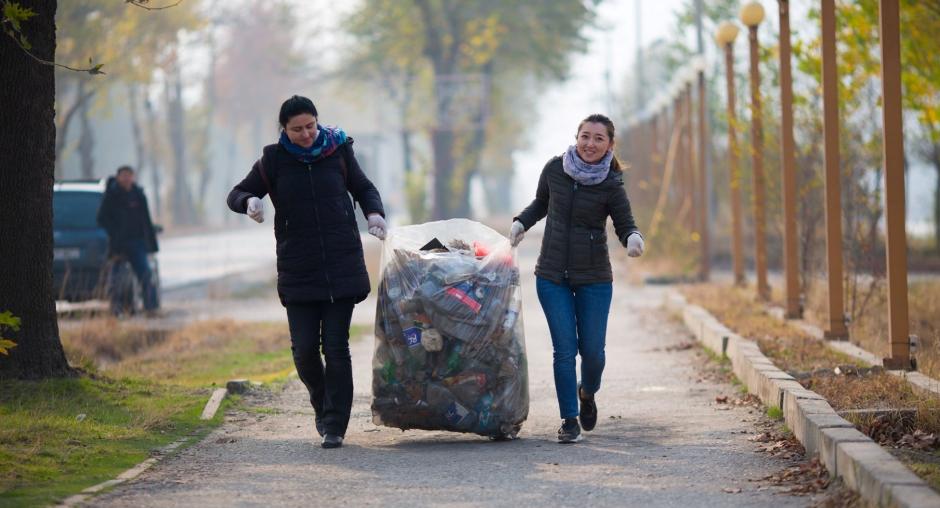Environmental activities
Disaster risk reduction
The new disaster risk reduction project, developed by the Programme Office, is focused on strengthening the communities’ resilience and enhancing response capabilities to national emergencies and natural disasters. Through its assistance to the Committee on Emergency Situations and Civil Defence, the Office is creating institutionalized training capacity within the Committee. This includes mentoring instructors and producing teaching and learning materials to improve the quality and scope of training offered to the Committee’s experts, centrally and, particularly, in the regions. This support is supplemented by the community level disaster prevention and mitigation, including the erection of debris flow barriers and mountain slope terracing. Awareness-raising is also being held at disaster prone districts together with the Tajik Red Crescent Society. In co-operation with the European Union, the Office has also initiated a large-scale initiative to revive the Committee’s training facility for search and rescue courses in Karatag, in the north-west.
Water Management and Energy Security
In Tajikistan, sufficient national water resources and energy security are the ultimate goals of the long-term development strategy, which envisages an improvement of the standards of living of population based on sustainable economic development for the period up to 2030.. Both are inextricably connected. Therefore, sustainable use of water and energy resources is strategically important for ecological, political and socio-economic development of the country.
To support Tajikistan in sustainably managing precious water resources, the Programme Office has been actively involved in the implementation of the Water Sector Reform Program. The Office facilitates development of legislation by helping to elaborate legislative and normative acts to the newly adopted Water Code, thus paving the way to improved water resources management and governance.
In addition, the Office seeks to enhance the role and participation of women in the water sector. For this, the OSCE intends to support the Syrdarya River Basin Forum through which women can voice their ideas, concerns and beliefs, and discuss their visions on improving water management in Tajikistan. Moreover, the Office will take efforts to communicate the idea of establishing similar basin women forums in other river basins.
Universal access to safe drinking water, sanitation and adequate hygiene (WASH) services is essential to population health, welfare and development. Consequently, improving the sanitation situation, especially in rural areas of Tajikistan contributes significantly to building the foundation of achieving sustainability. The Programme Office conducted a desk study in 2020 to identify the main sanitation issues in in rural areas. Based on the results, sanitation solutions will be identified and implemented in target-selected areas in the coming years.
The Programme Office has been engaged in building capacity of young people, including from from Central Asia and Afghanistan by conducting a training course in Tajikistan on the essence of drafting and analysing research in water resource management. The objective of the capacity building is first to hone research skills of the participants and in the long run, to contribute to regional cooperation and establishing sustainable water policies.
Last, the Programme Office is supporting Tajikistan in implementation of its national development strategy on energy security and efficient use of energy, particularly in remote rural areas outside the national electricity grid by reconstructing micro hydro power plants and installing renewable energy sources for electricity. Thus over several years, the Office reconstructed three micro hydro power plants (MHPPs) in the Rasht valley and provided photovoltaic applications and solar thermal to five (5) villages in the upper Zerafshan valley and two (2) villages of Vakhdat district.

